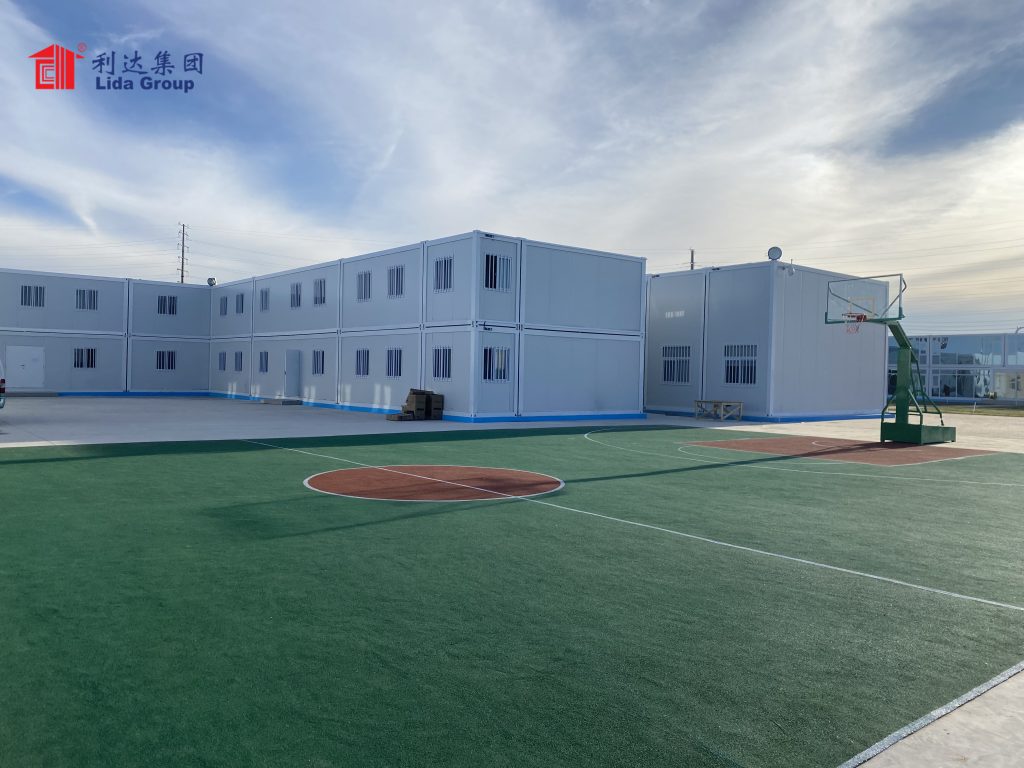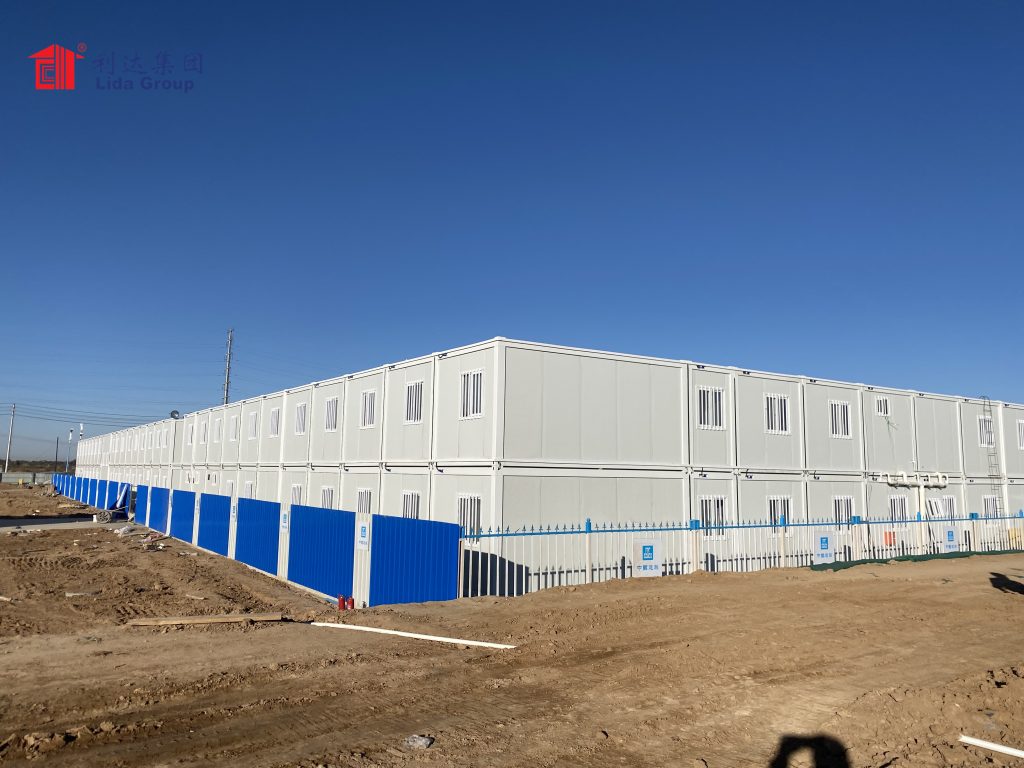Lida Group today unveiled plans for a new line of container apartment units designed for rapid construction and affordable living. The Shanghai-based construction firm, a leader in prefabricated modular building, showcased full-scale prototype models and design plans at their annual construction technology expo.
The container apartments integrate multiple standardized shipping containers that have been reinforced, insulated, and outfitted as fully-functional living spaces. According to Lida Group CEO Mu, each apartment ranges between 500-1000 square feet and can be configured as studio units, one-bedroom units, or combined into larger multi-container complexes.
What distinguishes these container apartments from other prefab housing offerings on the market is their unique combination of sustainability, cost-effectiveness, and rapid deployment capabilities. The steel shipping containers used as the building blocks are durable, weatherproof, and can be easily stacked, positioned, and interconnected on-site with cranes – allowing entire apartment communities to potentially be assembled in a matter of weeks.
All materials and components are designed for maximum reuse and recyclability at the end of the building’s lifecycle. The airtight steel shells provide excellent insulation properties to lower energy consumption, while integrated solar panels, rainwater collection, and greywater treatment systems help reduce the housing’s environmental footprint and living expenses.
“Our goal is to address dual challenges of sustainable construction and affordable housing through modular building technologies,” Mu told reporters at the expo. “By leveraging shipping containers that already exist worldwide in vast numbers, our process involves little new material waste. And by mass-producing standardized apartment designs for repetitive on-site assembly, we can dramatically reduce construction timelines and costs.”

Lida Group expects to achieve 30-50% savings in materials and 20-40% faster construction compared to traditional apartment buildings through their container assembly model. Completed apartment developments can be delivered turnkey with interior fittings and appliances already installed in a fraction of the time conventional projects require, potentially 6-12 months sooner.
While container construction has been experimented with for owner-built homes and small communities, Lida Group’s development represents the largest prefabricated modular housing project of its kind to date. The company plans to produce 500 prototype apartment units this year at its new container campus to test market reception, design refinements, and scalable manufacturing processes.
Pending successful pilot operation, Lida Group aims to ramp production up to 5,000-10,000 units annually within five years to meet forecast worldwide demand for sustainable affordable housing projected to exceed 100 million units by 2025. Mass manufacturing of standardized containers and interior modules at centralized factories allows tremendous economies of scale.
In addition to lower costs, Lida Group’s model offers other advantages over on-site stick-built construction. Communities can be located virtually anywhere as they do not require a permanent heavy infrastructure and are less impacted by environmental conditions or access issues at remote building sites.
Entire developments are designed, engineered, and pre-wired in a controlled plant setting with strict quality control, resulting in fewer construction errors or defects. The modular steel components are also able to better withstand natural disasters like earthquakes, fires, floods and storms compared to traditional wood framing.
Shipping containers have already found common off-grid applications as mobile classrooms, clinics, stores and event spaces, but few have achieved the residential densities and urban infill that Lida aims to demonstrate. However, some experts have expressed concerns that perceived container identities could potentially impact property values or resident satisfaction over the long run.
“There is still stigma in some markets about container construction being minimalist or temporary,” acknowledged Liu, head of Lida Group’s new developments division. “But our design approach focuses on creating light-filled, comfortable living experiences through large windows, high ceilings, and well-appointed amenities. We’re confident container living can become a respected mainstream option if executed well at the community scale.”

To address doubts, the company plans to install its first fully-formed container apartment complex this autumn in the suburbs of Shanghai. The 50-unit pilot community will serve to showcase the living quality, noise and thermal insulation capacities, as well as monitor maintenance needs and owner satisfaction during the first year of occupancy.
Residents will enjoy modern open-concept floor plans, full kitchens and bathrooms, high-speed internet connectivity, indoor parking, and on-site recreational facilities like gardens, playgrounds, and leisure rooms – similar amenities found in traditional luxury apartment developments. Monthly rents are set 20-30% below comparable units in the area given the project’s compressed development timeline and lean construction budget.
If the Shanghai complex proves the viability of Lida Group’s model for container community living, the technology could potentially disrupt construction markets in major metropolises where land values are high and workforce housing shortages are acute issues. The company already has signed agreements to build prototype apartment projects in cities like Singapore, Mumbai, and Vancouver pending this year’s trial operations.
With container apartment capacity growing to the thousands of units soon, some have speculated whether Lida Group may also explore entry into other types of volumetric construction using modular building techniques, such as budget hotels, student housing, retirement communities or temporary disaster relief shelters. However, the firm remains solely focused on pioneering sustainable and affordable residential container solutions for the present.
While there remain unanswered long-term questions about things like property appreciation, indoor air quality, noise transfer, and durability over decades of use in containers designed for transport not permanent housing, Lida Group aims to tackle such technological barriers through continuous research and innovation. Their newest apartment line could usher in a new era of high-density prefabrication worldwide if container living proves viable and popular with residents and investors alike.
Only time will tell if shipping container apartments can indeed transform from novelty concept to respected mainstream housing option. But with bold ventures like Lida Group addressing pressing worldwide needs of sustainable and affordable construction at massive scales, modular building methods may soon redefine how we design and develop our cities and living spaces.

Related news
contact us
- Tel: +86-532-88966982
- Whatsapp: +86-13793209022
- E-mail: sales@lidajituan.com


